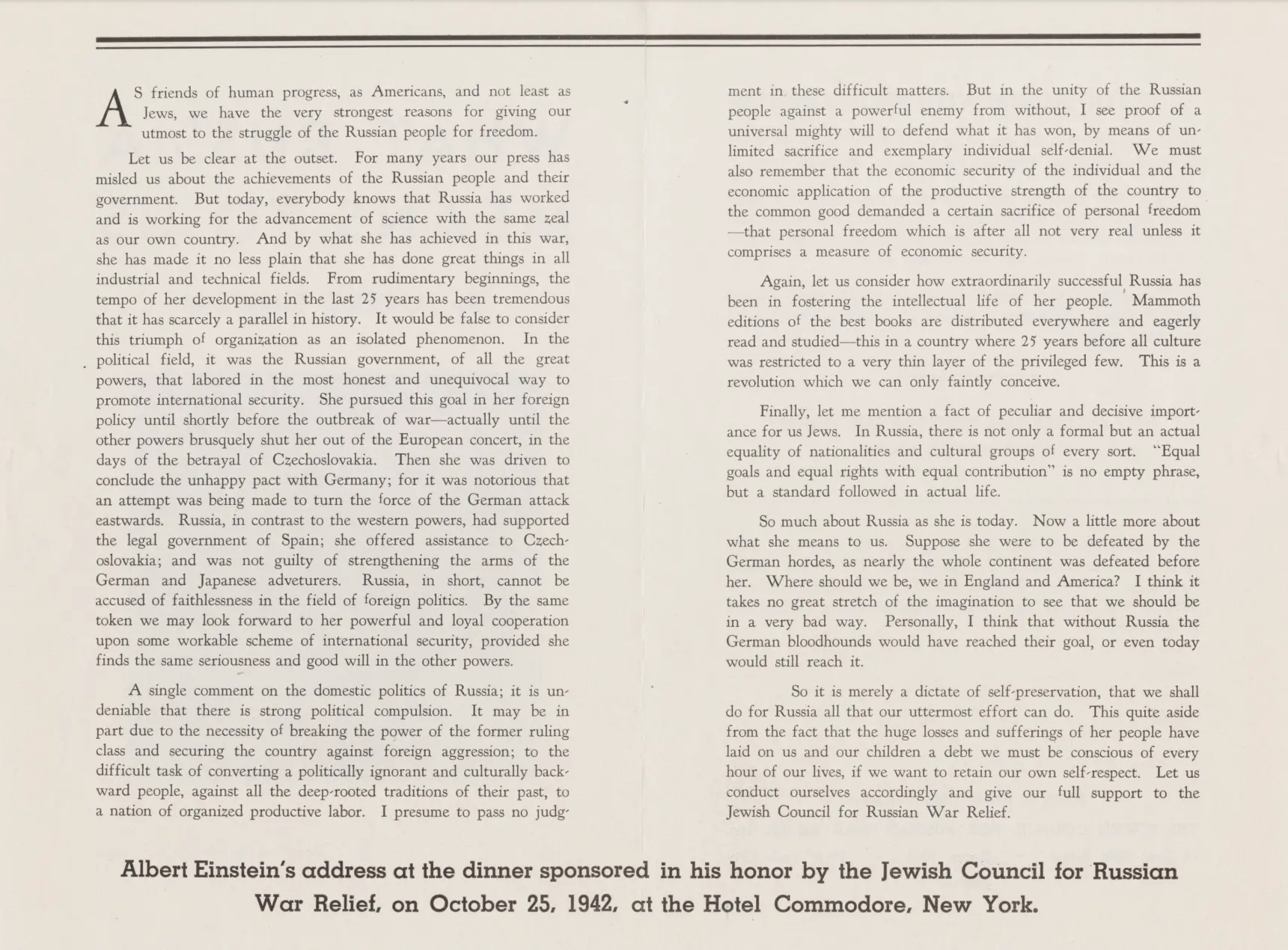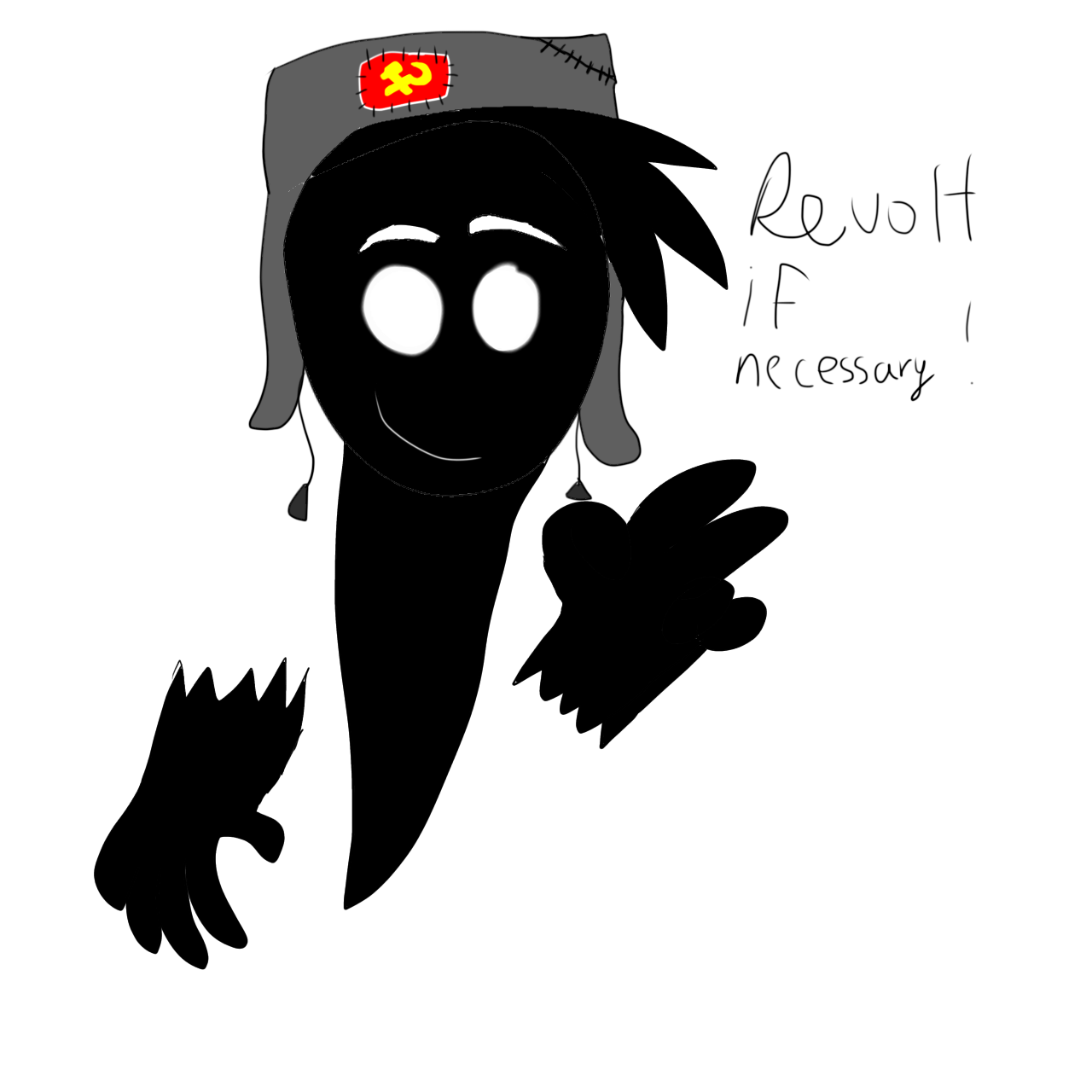%%last updated to match The Deprogram Wiki on 2023-08-13%%
The Molotov-Ribbentrop Pact
Anti-Communists and horseshoe-theorists love to tell anyone who will listen that the Molotov-Ribbentrop Pact (1939) was a military alliance between the Soviet Union and Nazi Germany. They frame it as a cynical and opportunistic agreement between two totalitarian powers that paved the way for the outbreak of World War II in order to equate Communism with Fascism. They are, of course, missing key context.
German Background
The loss of World War I and the Treaty of Versailles had a profound effect on the German economy. Signed in 1919, the treaty imposed harsh reparations on the newly formed Weimar Republic (1919-1933), forcing the country to pay billions of dollars in damages to the Allied powers. The Treaty of Versailles, which ended the war, required Germany to cede all of its colonial possessions to the Allied powers. This included territories in Africa, Asia, and the Pacific, including German East Africa, German Southwest Africa, Togoland, Cameroon, and German New Guinea.
With an understanding of Historical Materialism and the role that Imperialism plays in maintaining a liberal democracy, it is clear that the National Bourgeoisie would embrace Fascism under these conditions. (Ask: “What is Imperialism?” and “What is Fascism?” for details)
Judeo-Bolshevism (a conspiracy theory which claimed that Jews were responsible for the Russian Revolution of 1917, and that they have used Communism as a cover to further their own interests) gained significant traction in Nazi Germany, where it became a central part of Nazi propaganda and ideology. Adolf Hitler and other leading members of the Nazi Party frequently used the term to vilify Jews and justify their persecution.
The Communist Party of Germany (KPD) was repressed by the Nazi regime soon after they came to power in 1933. In the weeks following the Reichstag Fire, the Nazis arrested and imprisoned thousands of Communists and other political dissidents. This played a significant role in the passage of the Enabling Act of 1933, which granted Hitler and the Nazi Party dictatorial powers and effectively dismantled the Weimar Republic.
Soviet Background
Following the Russian Revolution in 1917, Great Britain and other Western powers placed strict trade restrictions on the Soviet Union. These restrictions were aimed at isolating the Soviet Union and weakening its economy in an attempt to force the new Communist government to collapse.
In the 1920s, the Soviet Union under Lenin’s leadership was sympathetic towards Germany because the two countries shared a common enemy in the form of the Western capitalist powers, particularly France and Great Britain. The Soviet Union and Germany established diplomatic relations and engaged in economic cooperation with each other. The Soviet Union provided technical and economic assistance to Germany and in return, it received access to German industrial and technological expertise, as well as trade opportunities.
However, this cooperation was short-lived, and by the late 1920s, relations between the two countries had deteriorated. The Soviet Union’s efforts to export its socialist ideology to Germany were met with resistance from the German government and the rising Nazi Party, which viewed Communism as a threat to its own ideology and ambitions.
Collective Security (1933-1939)
The appointment of Hitler as Germany’s chancellor general, as well as the rising threat from Japan, led to important changes in Soviet foreign policy. Oriented toward Germany since the treaty of Locarno (1925) and the treaty of Special Relations with Berlin (1926), the Kremlin now moved in the opposite direction by trying to establish closer ties with France and Britain to isolate the growing Nazi threat. This policy became known as “collective security” and was associated with Maxim Litvinov, the Soviet foreign minister at the time. The pursuit of collective security lasted approximately as long as he held that position. Japan’s war with China took some pressure off of Russia by allowing it to focus its diplomatic efforts on relations with Europe.
— Andrei P. Tsygankov, (2012). Russia and the West from Alexander to Putin.
However, the memories of the Russian Revolution and the fear of Communism were still fresh in the minds of many Western leaders, and there was a reluctance to enter into an alliance with the Soviet Union. They believed that Hitler was a bulwark against Communism and that a strong Germany could act as a buffer against Soviet expansion.
Instead of joining the USSR in a collective security alliance against Nazi Germany, the Western leaders decided to try appeasing Nazi Germany. As part of the policy of appeasement, several territories were ceded to Nazi Germany in the late 1930s:
- Rhineland: In March 1936, Nazi Germany remilitarized the Rhineland, a demilitarized zone along the border between Germany and France. This move violated the Treaty of Versailles and marked the beginning of Nazi Germany’s aggressive territorial expansion.
- Austria: In March 1938, Nazi Germany annexed Austria in what is known as the Anschluss. This move violated the Treaty of Versailles and the Treaty of Saint-Germain, which had established Austria as a separate state following World War I.
- Sudetenland: In September 1938, the leaders of Great Britain, France, and Italy signed the Munich Agreement, which allowed Nazi Germany to annex the Sudetenland, a region in western Czechoslovakia with a large ethnic German population.
- Memel: In March 1939, Nazi Germany annexed the Memel region of Lithuania, which had been under French administration since World War I.
- Bohemia and Moravia: In March 1939, Nazi Germany annexed Bohemia and Moravia, the remaining parts of Czechoslovakia that had not been annexed following the Munich Agreement.
However, instead of appeasing Nazi Germany by giving in to their territorial demands, these concessions only emboldened them and ultimately led to the outbreak of World War II.
The Molotov-Ribbentrop Pact
Papers which were kept secret for almost 70 years show that the Soviet Union proposed sending a powerful military force in an effort to entice Britain and France into an anti-Nazi alliance.
Such an agreement could have changed the course of 20th century history…
The offer of a military force to help contain Hitler was made by a senior Soviet military delegation at a Kremlin meeting with senior British and French officers, two weeks before war broke out in 1939.
The new documents… show the vast numbers of infantry, artillery and airborne forces which Stalin’s generals said could be dispatched, if Polish objections to the Red Army crossing its territory could first be overcome.
But the British and French side - briefed by their governments to talk, but not authorised to commit to binding deals - did not respond to the Soviet offer…
— Nick Holdsworth. (2008). Stalin ‘planned to send a million troops to stop Hitler if Britain and France agreed pact’
After trying and failing to get the Western capitalist powers to join the Soviet Union in a collective security alliance against Nazi Germany, and witnessing country after country being ceded, it became clear to Soviet leadership that war was inevitable-- and Poland was next.
Unfortunately, there was a widespread belief in Poland that Jews were overrepresented in the Soviet government and that the Soviet Union was being controlled by Jewish Communists. This conspiracy theory (Judeo-Bolshevism) was fueled by anti-Semitic propaganda that was prevalent in Poland at the time. The Polish government was strongly anti-Communist and had been actively involved in suppressing Communist movements in Poland and other parts of Europe. Furthermore, the Polish government believed that it could rely on the support of Britain and France in the event of a conflict with Nazi Germany. The Polish government had signed a mutual defense pact with Britain in March 1939, and believed that this would deter Germany from attacking Poland.
Seeing the writing on the wall, the Soviet Union made the difficult decision to do what it felt it needed to do to survive the coming conflict. At the time of the Molotov-Ribbentrop Pact’s signing (August 1939), the Soviet Union was facing significant military pressure from the West, particularly from Britain and France, which were seeking to isolate the Soviet Union and undermine its influence in Europe. The Soviet Union saw the Pact as a way to counterbalance this pressure and to gain more time to build up its military strength and prepare for the inevitable conflict with Nazi Germany, which began less than two years later in June 1941 (Operation Barbarossa).
Additional Resources
Video Essays:
- How Stalin Outplayed Hitler: The Molotov–Ribbentrop Pact | Politstrum International (2020)
- The truth about the Molotov–Ribbentrop Pact (Visualization) | Russia Good (2019)
- Soviet Nonaggression-Pact / The Soviet Perspective | Lady Idzihar (2022)
Books, Articles, or Essays:
- The Truth About The Molotov-Ribbentrop Pact | Politsturm
- End of the ‘Low, Dishonest Decade’: Failure of the Anglo-Franco-Soviet Alliance in 1939 | Michael Jabara Carley (1993)
I’m going to go ahead and throw my copy-paste here for anyone that wishes to use it. I’ve had general success with it as a starting point for opposing the usual lies about this event. I strongly recommend that in online interactions people pick up various popular historical figures that have very good respect from liberals. It is the cleanest and easiest way to get past the usual claims that you’re making stuff up and to make the cogs in people’s heads actually start working. Slotting Albert Einstein into my points on molotov-ribbentrop has drastically changed my interactions with people as liberals can not simply dismiss him without being the person in the room claiming to be smarter than Einstein.
This is historical revisionism. The soviets did absolutely everything they could to try and convince France and the UK to take action against Hitler but they were hoping Hitler would attack the USSR.

The ACTUAL historic timeline is like this:
1: The United States Bourgeoisie bankrolled the rise of fascism in Europe.
2: The bourgeois leaders of England, France, Poland, Finland and other Western European nations either ignored, enabled, or appeased Hitler’s worst behavior in the buildup to WW2.
3: The bourgeois leaders of these countries, England in particular, pushed for disastrous bilateral security arrangements which created a domino effect leading to war, while ignoring the USSR’s suggestion of collective, anti-fascist security arrangements.
4: The bourgeois leaders of these countries pursued a policy not of containing fascist aggression, but of diplomatically isolating the USSR, in the hopes that Hitler would go East and carry out an anti-communist genocide on their behalf.
5: The bourgeois leaders of these countries, having ignored or stalled collective security proposals from the USSR, actively made bilateral non-aggression pacts with Hitler before Molotov-Ribbentrop was signed, making the USSR the last in a long line of nations to sign non-aggression pacts with Hitler, after the USSR’s collective security proposals fell through.
6: The USSR only signed Molotov-Ribbentrop to buy time. The USSR only invaded East Poland to prevent a German front from forming right at the Soviet border. This is because attempts to make mutual security arrangements with Poland fell through. The Soviets only moved into the region after the existing government had literally fled the country, leaving it ungoverned. 2 million jews in eastern poland were saved from the nazis by this action.
7: The USSR tried to purchase a strategic corridor of land from Finland that the nazis could easily use to invade the USSR. The USSR not only wanted to legally purchase this land from Finland, but to trade Finland more acres of land in exchange. i.e. an asymmetrical trade that would have ultimately benefited Finland. Finland refused because the fascist leadership of Finland wanted to see Germany invade the USSR through this strategic corridor. This led directly to the Winter War. The Finnish lost the winter war but used their intelligence that they gathered during it to collaborate with the nazis.
8: When the North Atlantic allies finally teamed up with USSR after their strategy of appeasing Hitler backfired, they immediately attempted to make asymmetrical security arrangements that would have obligated the USSR to commit far more troops and resources to the war than any other ally, essentially using the USSR as a shield against the very fascist powers they had spent the better part of a decade appeasing. The British in particular kept stalling on arrangements and pretending to be confused.
9: When the war was over the North Atlantic allies, led by the USA, who came out of the war richer than any other country on Earth, immediately committed to rehabilitating nazis, blaming the USSR, who was decimated by the war, for causing the war, and created NATO to begin encircling the USSR, 6 years before the creation of the Warsaw pact.
10: The North Atlantic allies immediately set to using the Marshall plan to rebuild the fascist German, Italian, and Japanese economies, indebting them to the United States, and orienting them towards anti-communist policy.
11: The North Atlantic allies to tried to use the Marshall plan as a proto-IMF to privatize and deregulate the economy of the war-torn USSR, and open it up to foreign capital. That the USSR rejected this was framed as aggression and used as a justification for beginning the cold war.
But hey, don’t just take my word for it, or this rough outline of what is contained in well regarded books (I implore you to read some). How about we read Albert Einstein’s words spoken at the time these events actually occurred?

A lot to unpack in this speech but the basics of what Einstein says are:
-
The USSR made all efforts to stop the war happening.
-
The western powers(UK, France, US, etc) shut the USSR out of European discussions and betrayed Czechoslovakia.
-
Molotov-Ribbentrop was an unhappy last resort that they were driven to, that the western powers were attempting to drive the nazis into attacking the USSR and that’s why they would not help the USSR stop them.
-
The USSR supported everyone while the other powers (UK, France, US, etc) strengthened the nazis and Japanese.
The appointment of Hitler as Germany’s chancellor general, as well as the rising threat from Japan, led to important changes in Soviet foreign policy. Oriented toward Germany since the treaty of Locarno (1925) and the treaty of Special Relations with Berlin (1926), the Kremlin now moved in the opposite direction by trying to establish closer ties with France and Britain to isolate the growing Nazi threat. This policy became known as “collective security” and was associated with Maxim Litvinov, the Soviet foreign minister at the time. The pursuit of collective security lasted approximately as long as he held that position. Japan’s war with China took some pressure off of Russia by allowing it to focus its diplomatic efforts on relations with Europe.
Great work
👍 Not all me pretty much everything I ever post is built on the backs of the work of many. See good shit, chop it up, mix it together, edit it iteratively each time it gets posted based on how it went last time so it gets better over time. So yeah I won’t take credit really, the outcome is what matters.
-
Recently, the r/TheDeprogram subreddit was threatened with banning by Reddit admins. I got the go-ahead to mirror the subreddit wiki on lemmygrad in case. I have made a few formatting changes to better suit Markdown formatting and corrected a few typos. Full credit goes to the original authors of the wiki.
What was the threat reasoning? They have been incredibly careful.
from the pinned post in r/TheDeprogram:
We recently received a formal warning from the Reddit Admins that we need to emphasize the following part of Rule #2, (which is really Rule #1, according to Reddit policy):
Use screenshots or an archiving service. If the content is coming from a non-leftist subreddit, please censor all usernames and the subreddit name as well. If you must link to somewhere else on reddit that isn’t politically aligned, please use the non-participant (np) variant of the URL. (e.g., https://np.reddit.com/r/TheDeprogram)
If we do not want the sub to be quarantined or banned, we need to take this seriously.
well no matter how well they follow the rules i give the sub six months before it gets chapo trap house’d. no good commie sub lives that long after getting so much notoriety.
Right so they’re going to go ham on anything that remotely looks like brigading then. This means it can’t criticise anything anywhere else on reddit.
Have they ever warned ShitLiberalsSay for anything like this? Greenandpleasant has never had this warning either but to be fair we’ve always outright removed anything that isn’t censored so that might’ve gotten it off the hook.
I think one of the bigger problems communists have on reddit is going to be giving up, as people decide more and more that it is inevitable reddit will remove communist subreddits the behaviour of users will become more and more belligerent in a “it’s gonna be banned anyway” kind of way which will make mods lives hard. I do not envy Nakoichi or how difficult it is to balance not pissing off a bunch of dirtbag leftists who like to riot while also trying to keep the sub from being banned while also maintaining some sort of “edge” that keeps the place energised.
In a nutshell: The Molotov-Ribbentrop Pact is just an NAP that Nazi Germany eventually broke because of course they’re fucking Nazis, and this pact didn’t fuckin’ mean the Soviets and the Nazis wanted to legitimately team up, it’s just the two wanted to bide for time, building up armies and shit + This NAP isn’t the only treaty that the Nazis signed.




